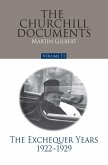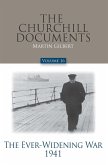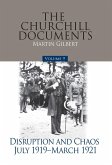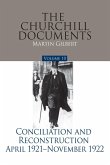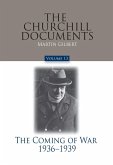For Churchill, the period was dominated first by the need to defeat Germany; then by the post-war settlement and the Allied intervention against the Bolsheviks in Russia; and by a growing personal awareness of the strong forces of disruption and chaos with which the early years of the twentieth century were being threatened. The many private letters published here show the range of Churchill's moods and the extent of his fears. His wife Clementine is an ever-present influence.
In the writing of the official biography of Sir Winston Churchill, Randolph Churchill-and later Sir Martin Gilbert, who resumed the work following Randolph's death-had full access to Sir Winston's letters and papers, and also many hundreds of private archives. The work spans eight volumes, detailing Churchill's youth and early adventures in South Africa and India, his early career, and his more than fifty years on the world stage. No other statesman of modern times-or indeed of any age-has left such a wealth of personal letters, such a rich store of private and public documentation, and such vivid memories in the minds of those who worked closest to him. Through these materials, assembled over the course of more than twenty years, one is able to know Churchill in a way never before possible. Churchill's personal papers are so extensive that it was only possible to include in the narrative volumes a part of the relevant documents. The volumes titled The Churchill Documents run parallel with the narrative volumes, and with them form a whole. The letters, documents, and correspondence contained within are drawn from the Churchill Papers, now at Churchill College, Cambridge, and from many other archival sources, both private and public.
Dieser Download kann aus rechtlichen Gründen nur mit Rechnungsadresse in A, B, BG, CY, CZ, D, DK, EW, E, FIN, F, GR, HR, H, IRL, I, LT, L, LR, M, NL, PL, P, R, S, SLO, SK ausgeliefert werden.




